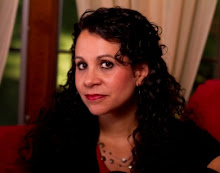I wrote fiction unsuccessfully for many years. What boosted me to
publication was a class on Scene Writing by a former Hollywood scriptwriter.
Tips:
1. Consider each scene as a mini-novel with a beginning, middle, and a
climax. It should open with a unique setting and a character that wants
something but can't have it. It should highlight ACTION and end with a
climax that doesn't get resolved (i.e. a hook).
2. Watch movies. (A great excuse!) Note set-up and highlighted action.
Notice unique characters, settings, character tags, and dialogue. Then, as
you write, watch your "movie" unfold in your mind.
My mode:
1.. Start with a unique character. Mine have included:
--a sympathetic Nazi wife who helps concentration camp victims
--a thirteen-year-old musician who fakes his way into a camp orchestra
--a Jew in hiding who finds herself pregnant by a Nazi officer.
2.. Research.
--I read over fifty research books, memoirs, and I interviewed veterans or
historical witnesses. What can you do to dive into your story world?
--The "true" events in history help me build a riveting plot. I formulate my
plot as I read. (With help of Randy Ingermanson's Snowflake method:
www.rsingermanson.com)
--I take notes to help with description, characterization, events, etc.
3.. Write.
--I know it's time to start writing when I close my eyes and I'm "there." I
know my story, know my characters, and see my in-mind movie.
--I write fast. Instead of trying to figure out what's next, the characters
and story hurl me along and my fingers have trouble keeping up with them.
4. Edit.
-- Look at each chapter and scene to make sure it advances the story. In my
last two novels I've cut whole chapters after I realized that they were nothing
more than wonderful research. Yes, there was action, dialogue, etc. but I knew
they had to go when I cut them and it didn't change the plot.
-- I do "finds" on passive verbs and rewrite those sentences to make them
tighter. Then I reread each scene to make it as tight as possible.
-- I take out "saids" if it's clear who's talking.
-- Make sure my scenes don't start too soon or trail on too long.
-- Cut out any descriptions of emotion. If it's obvious from the text how
the person feels, I don't need to say it.
For DAILY writing encouragement, go to: www.writerquotes.blogspot.com
Happy Writing! Tricia Goyer
Tricia Goyer was named Mount Hermon Christian Writers Conference "Writer of the Year" in 2003. Tricia was a finalist for the Gold Medallion Book Award and she also won ACFW's "Book of the Year" for Long Historial Romance in 2005. She has written hundreds of articles, Bible Study notes, and both fiction and non-fiction books.
Tuesday, September 12, 2006
Subscribe to:
Post Comments (Atom)

6 comments:
GREAT tips, Tricia! Thanks!
Chiming in, I loved this, very motivating, which is exactly what I'm needing! Thanks!
You're welcome. Glad I can encourage others as I was encouraged!
Wow, Tricia. I was challenged by what you said about cutting chapters. i recently did that on my spy story. Definitely not easy to do. As we say in our crit group, murder your darlin's. :-D
I'm struggling with making my work long enough as it is. I'm thinking I need some instruction on development of the characters. I have the plot down pretty much. Still feels a bit like my characters might be a little flat.
There are some great books out there to help with characterization.
GMC: Goals, Motivation, and Conflict by Debra Dixon
Getting into Character by Brandilyn Collins are great places to start.
Post a Comment